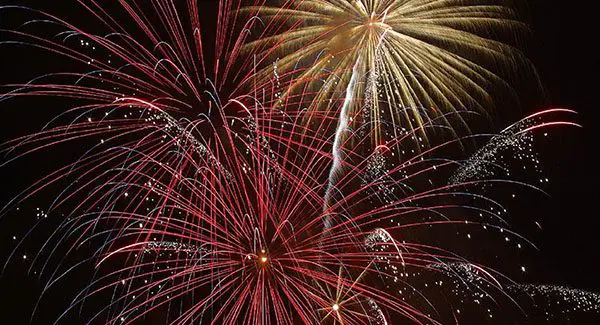- Community Associations, Seasonal and Holidays
- Illinois
While Fourth of July fireworks are often a big part of American celebrations, they can pose damage to both people and property. As the Independence Day holiday approaches, Associations should remind their residents of the fireworks rules and regulations that are in place in order to keep the community safe. Below are three levels of laws to consider about fireworks in your condominium or homeowners Association.
- Federal
The Bureau of Alcohol, Tobacco, Firearms and Explosives (ATF) enforces fireworks laws and regulations. They place fireworks into two categories: display fireworks and consumer fireworks. Display fireworks are utilized in large displays and are monitored by trained and certified technicians. These displays are coordinated with governing bodies and fire departments and typically require permits and insurance coverage. Federal law bans many types of fireworks such as M-80s, cherry bombs, along with any firework with more than 50 milligrams of pyrotechnic composition. Unless prohibited by federal, state or local laws, consumer fireworks can be sold to the general public.
- State
Illinois law bans all types of consumer fireworks. However, according to the Pyrotechnic Use Act (“PUA”), certain fireworks are not identified consumer fireworks and therefore are legal. These “unregulated novelty fireworks” include:
- snake or glow worm pellets;
- smoke devices;
- trick noisemakers known as “party poppers”, “booby traps”, “snappers”, “trick matches”, “cigarette loads”, and “auto burglar alarms”;
- sparklers
- toy pistols, toy canes , toy guns, or other devices in which paper or plastic caps containing twenty-five hundredths grains or less of explosive compound are used, provided they are so constructed that the hand cannot come in contact with the cap when in place for the explosion; and
- toy pistol paper or plastic caps that contain less than twenty hundredths grains of explosive mixture.
While many Illinoisans cross borders to nearby states such as Indiana or Wisconsin to purchase fireworks legally, once you enter Illinois with these products you are in violation of the Pyrotechnic Use Act. Violations can lead to a $2500 fine and up to one year in prison. Additionally, unlawful possession, use, or purchase of display fireworks is a violation of the Illinois Explosives Act, punishable as a Class 3 felony with a maximum penalty of five years in prison and a $10,000 fine. The following are some of the consumer fireworks prohibited in Illinois:
- Hand held fireworks
- Bottle rockets
- Firecrackers of any size or type
- Sky rockets
- Roman candles
- Chasers
- Buzz bombs
- Ground items other than those identified as Approved Consumer Fireworks
- Helicopters
- Missiles
- Pin wheels or any other twirling device whether on the ground or mounted above the ground
- Sky Lanterns, the type of balloon which requires fire underneath to propel same
- Local
Along with federal and Illinois laws, fireworks can also be banned by local municipalities. Section 3.4 of the Pyrotechnic Use Act gives municipalities the authority to enact an ordinance prohibiting the sale and use of sparklers on public property. For example, the Village of Vernon Hills prohibits sparklers.
Conclusion
Not only are fireworks dangerous, the vast majority of these products are illegal in the state of Illinois. Associations should remind their residents that fireworks should be left to the professionals to ensure a safe holiday with family and friends.
If you are a landlord, Board member, property manager and have concerns regarding fireworks issues their effect on your property, please do not hesitate to contact KSN. You can reach our law firm by calling 847-537-0500 or visiting our website at www.ksnlaw.com.
Since 1983, KSN has been a legal resource for condominium, homeowner, and townhome associations. Additionally, we represent clients in real estate transactions, collections, landlord/tenant issues, and property tax appeals. We represent thousands of clients and community associations throughout the US with offices in several states including Florida, Illinois, Indiana, and Wisconsin.
This article is made available by the lawyer or law firm publisher for educational purposes only as well as to give you general information and a general understanding of the law, not to provide specific legal advice. By reading this article you understand that there is no attorney client relationship between you and the article author. This article should not be used as a substitute for competent legal advice from a licensed professional attorney in your state. © 2019 Kovitz Shifrin Nesbit, A Professional Corporation.


